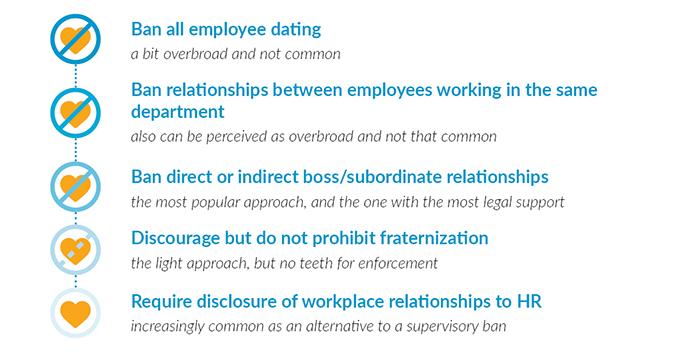-
Property & Casualty
Property & Casualty Overview

Property & Casualty
We offer a full range of reinsurance products and the expertise of our talented reinsurance team.
Trending Topics
Publication
Production of Lithium-Ion Batteries
Publication
Time to Limit the Risk of Cyber War in Property (Re)insurance
Publication
Generative Artificial Intelligence in Insurance – Three Lessons for Transformation from Past Arrivals of General-Purpose Technologies
Publication
Human Activity Generates Carbon and Warms the Atmosphere. Is Human Ingenuity Part of the Solution?
Publication
Inflation – What’s Next for the Insurance Industry and the Policyholders it Serves?
Publication
Pedestrian Fatalities Are on the Rise. How Do We Fix That? -
Life & Health
Life & Health Overview

Life & Health
We offer a full range of reinsurance products and the expertise of our talented reinsurance team.
Training & Education
Publication
Key Takeaways From Our U.S. Claims Fraud Survey
Publication
The Effects of Heatwaves – A Look at Heat-related Mortality in Europe and South Korea
Publication
The Key Elements of Critical Illness Definitions for Mental Health Disorders
Publication
An Overview of Mitral Regurgitation Heart Valve Disorder – and Underwriting Considerations
Publication
Body Mass Index as a Predictor of Cardiovascular Health Moving The Dial On Mental Health
Moving The Dial On Mental Health -
Knowledge Center
Knowledge Center Overview

Knowledge Center
Our global experts share their insights on insurance industry topics.
Trending Topics -
About Us
About Us OverviewCorporate Information

Meet Gen Re
Gen Re delivers reinsurance solutions to the Life & Health and Property & Casualty insurance industries.
- Careers Careers
Bosses Dating Subordinates - One of Many Reasons a Business Needs EPLI Protection

February 12, 2020
Mindy Pollack
English
Chances are that at some point in your career you became aware of a colleague dating his or her boss. Just over 48% of employees have dated a colleague during their professional lives, and 22% of those relationships involved a manager or supervisor.1 Once colleagues notice a relationship vibe between two people (which inevitably they will) and the gossip spreads (which unfortunately it always does), the impact is felt across the department and the entire company.
Boss-subordinate romance is laden with risk to the organization and the individuals, yet these relationships continue, even at the highest management levels. Witness the recent firing of McDonald’s CEO after news of his consensual relationship with a subordinate reached the Board of Directors. So, what can employers do to reduce the risk?
Dating the Boss is Risky
In the McDonald’s situation, CEO Steve Easterbrook had been credited with increasing the share price and profitability of the giant. That financial success did not save him from the consequences of violating the company’s non-fraternization policy prohibiting supervisors from having relationships with subordinates. In particular, the policy barred employees that had a “direct or indirect reporting relationship” from “dating or having a sexual relationship.”2 The policy went on to state that it is not “appropriate to show favoritism or make business decisions based on emotions or friendships rather than on the best interests of the company.”
We have reported on “paramour favoritism” lawsuits where a co-worker gained professional advancement because of a relationship with a supervisor.3 In one case, the lawsuit was allowed to progress even though the perceived relationship did not exist because the complaining employee had a reasonable, good faith belief that the two were a couple.
Sometimes the legal risk is created by how a company chooses to enforce its non-fraternization policy, as in the case with Koch Foods where a female HR manager was dating the plant manager.4 There was no direct or indirect supervisory connection to violate the company’s original non-fraternization policy. However, an unusual addition to the policy prohibited HR employees from dating any employee working at the same facility regardless of supervisory roles. After they married, he was considered for a promotion, and she applied for a more senior HR position. What happened? He was promoted, and she was fired according to the dating policy. In the lawsuit that followed, the court dismissed most claims but allowed allegations of sex discrimination to continue to trial. One reason given was the differential treatment shown the two individuals based on the same violation of the same policy.
Employee Handbook Policies
Almost half of U.S. companies have adopted a non-fraternization - also called “no romantic relationship” - policy, and the number continues to grow in the wake of high-profile affairs and #MeToo. Many employers have chosen not to adopt such policies for a variety of reasons: they do not think it will have much impact, what constitutes a relationship is difficult to define, such policies could lead to a decline in employee morale, or there are other tools to discipline employees. Some employers prefer disclosure of a relationship as a more effective way to ensure fairness in the workplace.
For those employers preferring a written non-fraternization or other written policy, there are many variations with benefits and drawbacks attached to each:

As Koch Foods learned from the case mentioned, any policy must be applied fairly to prevent additional legal problems. And, the policy should clearly state any penalties for violations, which usually include termination. But will having a handbook policy keep supervisor romance out of the workplace, or just under the radar? Probably some of both.
For the improper relationships that remain and lawsuits that may follow, there is Employment Practices Liability Insurance (EPLI) available to soften the financial impact. An EPLI policy covers discrimination, harassment and wrongful termination claims made by employees. So, if bosses do fraternize with employees, a business will have protection with EPLI.
Endnotes
- “Workplace Study: Office Romance Statistics for 2019,” www.rebootonline.com.
- “McDonald’s CEO Fired Over a Relationship That’s Become Taboo,” New York Times, Nov. 4, 2018.
- “Workplace Romance, Retaliation and #MeToo – A Valentine’s Day Bouquet,” Gen Re, Feb. 14, 2018, and “Office Romance, Favoritism and the Latest Claim Statistics: Why EPLI is a Must-Have,” Gen Re, Feb. 13, 2017.
- Collins v. Koch Foods, U.S. District Court, N.D. Ala., Sept. 23, 2019.




